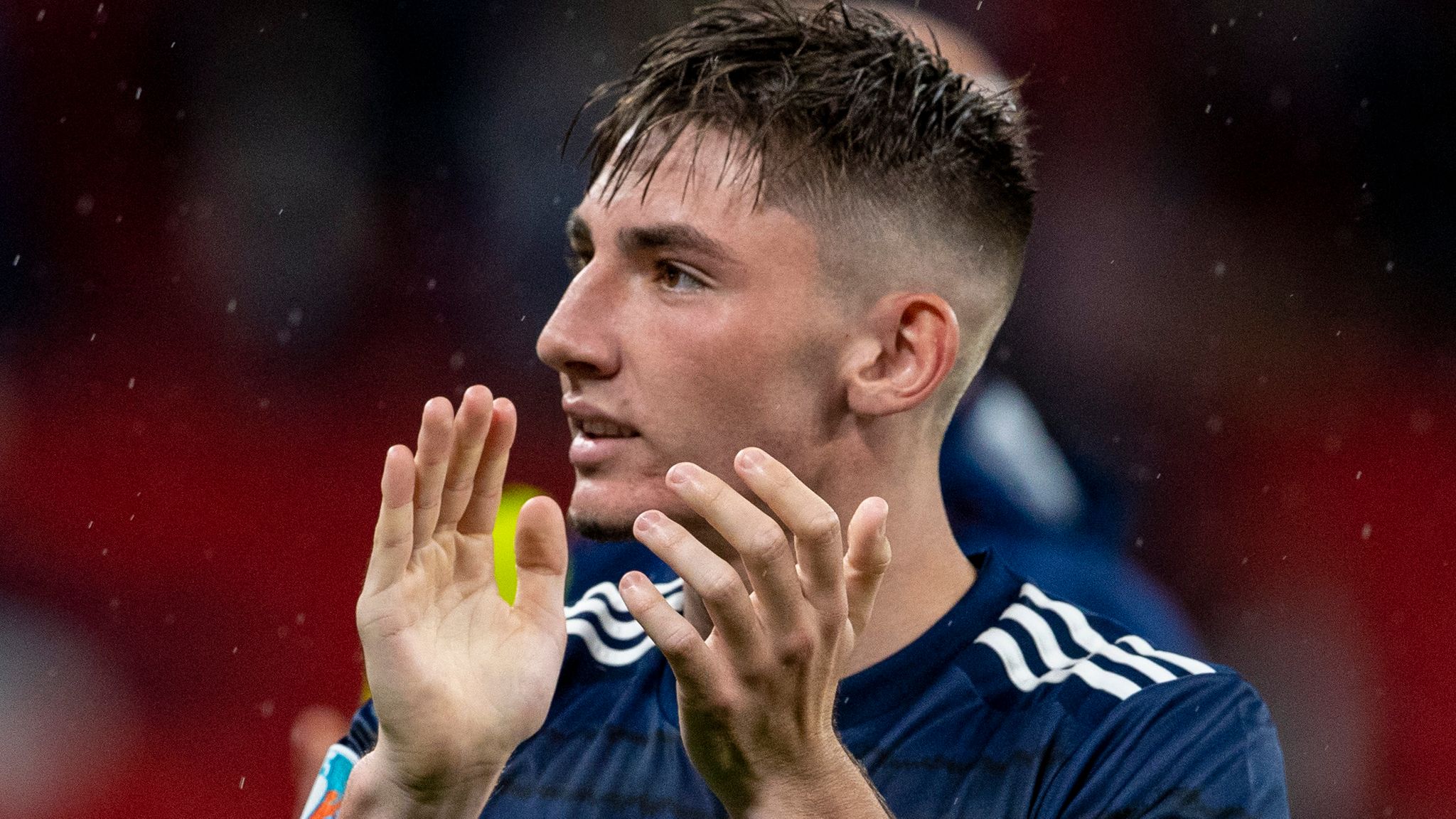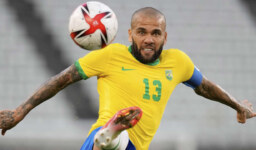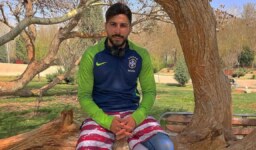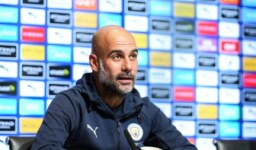
Scotland take on Croatia at Hampden Park on Tuesday as they look to qualify from Group D; Billy Gilmour will miss the game after testing positive for Covid-19; Charles Paterson reflects on previous Scottish misfortune at major tournaments
By Charles Paterson, Sky Sports News
Some of the stories of Scottish misfortune at major tournaments have been written into the country’s folklore. The chapter entitled Euro 2020 is yet to be completed, but threatens to be the most gut-wrenching yet.
Billy Gilmour’s positive Covid-19 test, and subsequent absence from Tuesday’s monumental match against Croatia, has the makings of another classic Scottish tale of hope and promise quickly quashed by dread and realism.
Scotland qualified for five successive World Cups between 1974 and 1990 – around each was a story of woe. In 1974 they went through their group unbeaten – including a draw with Brazil – but crashed out because they hadn’t scored enough goals against Zaire, becoming the first side to exit a World Cup without losing a game.
Four years later, whipped into a frenzy by manager Ally McLeod, Scotland travelled to Argentina confident of winning the tournament. The thousands that trekked to South America watched in horror as Peru tore their team apart, before drawing with unfancied Iran. The triumph over the Netherlands, capped by Archie Gemmill’s wondergoal, was an episode in glorious failure.
Pictures of Willie Miller and Alan Hansen colliding as the Soviet Union broke away to score in 1982 remain to this day a gallows humour for Scottish supporters. In 1986 an inability to score one goal against 10-man Uruguay ended hopes once more. At Italia ’90, a shock defeat to Costa Rica was embarrassing, but it was an 81st-minute goal by Brazil in Turin that knocked Scotland out on goal difference – again.
By now Scotland had started reaching European Championships as well – and at Euro ’96 they finally looked destined to reach the knockout stages as they beat Switzerland. Even England were helping their neighbours as they whacked the Dutch – but a late Patrick Kluivert consolation edged the Scots out once more.
The women took up the baton at France 2019, where a win over Argentina in their final group match would ensure qualification. Leading 3-0 with 16 minutes to play, some journalists were already booking flights for the second round, but a spectacular late slump saw three goals conceded and Scottish tears at full-time.
Fast forward to the present, and Tuesday’s seismic encounter looms as the most important game in Scottish football history – a virtual “win and in” scenario on home turf. For the Tartan Army, scarred by years of pain, this is the ultimate breakthrough opportunity; for the younger generation of supporter who have few memories of the torture of the past, it is like Christmas Eve. After enduring over a year of restrictions across society, victory would unleash the ultimate party.
Yet it is Covid-19 that threatens to strike a blow to Scotland’s hopes. Monday’s positive diagnosis of Gilmour at the team base in Darlington rules out the great young hope of Scottish football. On his full debut at Wembley on Friday, the 20-year old showed maturity beyond his years to control the midfield on his first international start.
Gilmour would have been a certain starter against Croatia, up against one of his clubmates, Mateo Kovacic, and one of his heroes, Luka Modric. Instead, he will be confined to his hotel room 200 miles away when his team-mates try to make history at Hampden. It is a crushing blow, but one that Scotland and Steve Clarke can cope with – assuming there are no other close contacts.
What do Scotland need to qualify?
Nothing less than a victory over Croatia will be sufficient for Scotland to have any hope of making it through to the last 16.
If Scotland win and England and the Czechs draw, Scotland should go through as one of the four third-placed teams. They could face either Netherlands, the winner of Group E (Sweden, Slovakia or Spain) in Glasgow on Tuesday June 29 or the winner of Group B (Belgium, Russia or Finland).
Ahead of the tournament, Clarke shrewdly noted that teams which coped best around Covid-19 issues would prosper. He will have a plan B, C and D for such an eventuality – but even so, he must be cursing his misfortune after the success of Wembley. Scotland have multiple options in the centre of the park, but few who can manipulate a game such as Gilmour.
Scott McTominay’s role now becomes pivotal. A midfield menace for Manchester United, he reverted to right centre-back against England and was largely untroubled, but Clarke must decide whether to shift him forward to counter Modric. Doing so would mean recalling one of the four central defenders he appeared reluctant to utilise at Wembley. Jack Hendry and Liam Cooper started against the Czechs – either could slot in against Croatia.
The greater likelihood is that Stuart Armstrong, who started against the Czechs and came on for Gilmour on Friday, will reclaim his starting spot with McTominay remaining in defence. Armstrong will provide a goal threat for Croatia to counter, and his link-up play with club-mate Che Adams is a positive that Scotland must accentuate. John Fleck, himself struck down by Covid-19 before the tournament, is another possibility, but Gilmour’s absence will ultimately matter little if Scotland cannot find the net on Tuesday.
A number of chances were spurned against the Czechs, but a far better all-round performance against England still did not yield a goal. Lyndon Dykes and Adams combined well at Wembley, but must be ruthless against Croatia, who themselves lack a potent finisher. The fact both teams need to win to progress should open the game; both need to gamble, both must attack, both require a moment of magic.
Perhaps, in a strange way, it is fitting that Gilmour’s positive test has struck Scotland at this moment, given all the drama and strife that has come before. Simply reaching this tournament via a penalty shootout in Serbia was stressful enough for the blood pressure of the nation; making another step into history should not come easily.
Clarke, the ultimate cool head, will not require anyone to make him feel better about Gilmour’s absence, but if the players are wavering, they can take heart from the case of Jon Rahm. Two weeks ago, the Spaniard was struck down by a positive Covid-19 test while leading the Memorial in Ohio by six shots, and walked off the course in tears. On Monday, he woke up as the new US Open champion – a classic triumph over adversity.
Years of anguish have made Scotland fans hardened and resilient, but the promised land of the knockout stages awaits. On Tuesday, those players picked have the chance to become legends; the hope across the land is that they seize the opportunity, even in trying circumstances.













